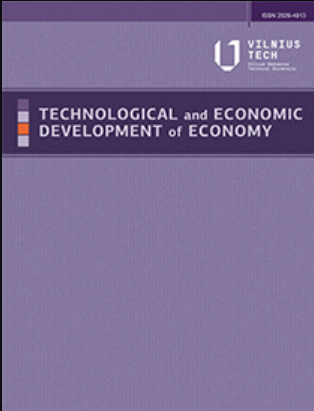数字化与 "大而不能倒 "的困境:银行金融科技创新对全要素生产率的机制和非对称效应
IF 4.8
2区 经济学
Q1 ECONOMICS
引用次数: 0
摘要
金融科技正在推动金融革命,并深刻影响着金融业的发展。然而,很少有研究探讨商业银行的金融科技创新如何影响全要素生产率(TFP)。为了构建商业银行金融科技指数,我们利用网络爬虫技术,在百度新闻中积累了与商业银行金融科技创新相关的新闻。我们利用 2010 年至 2020 年中国 72 家银行的面板数据,探讨了金融科技对商业银行全要素生产率的影响和作用机制。结果表明,经过一系列稳健性检验,金融科技创新有效提高了全要素生产率。此外,我们还发现,金融科技创新可以通过促进金融产品创新、增强风险控制能力、降低成本和提高利润来改善商业银行的全要素生产率。同时,金融科技的效用在资产、设施和人力资本较多的银行中更为显著,这意味着金融科技创新创造了一种 "越大越好 "的思维模式。同时,量化回归结果表明,金融科技创新程度越高,全要素生产率的提高越显著,这进一步揭示了数字化下商业银行存在 "大而不能倒 "的问题。本文章由计算机程序翻译,如有差异,请以英文原文为准。
DIGITALIZATION AND THE “TOO BIG TO FAIL” DILEMMA: MECHANISMS AND ASYMMETRIC EFFECTS OF BANKS’ FINTECH INNOVATION ON TOTAL FACTOR PRODUCTIVITY
Fintech is driving the revolution of finance and profoundly affecting the development of the financial sector. However, few studies examined how commercial banks’ fintech innovation affects total factor productivity (TFP). To build up the fintech index of commercial banks, we use web crawler technology to accumulate news related to the fintech innovation of commercial banks in Baidu news. We use the panel data of 72 banks in China from 2010 to 2020 to explore the impacts and mechanisms of fintech on commercial banks’ TFP. The results show that fintech innovation effectively improves TFP after a series of robustness tests. Further, we find that fintech innovation can improve commercial banks’ TFP by promoting innovations of financial products, increasing risk control capability, reducing cost, and improving profit. Also, the utility of fintech is more significant in banks with more assets, facilities, and human capital, which means that fintech innovation creates a “bigger is better” mindset. Meanwhile, the result of quantile regression shows that the higher the fintech innovation, the more significant the increase in TFP, which further reveals that there is ‘too big to fail’ among commercial banks under digitalization.
求助全文
通过发布文献求助,成功后即可免费获取论文全文。
去求助
来源期刊
CiteScore
10.00
自引率
8.50%
发文量
66
审稿时长
15 weeks
期刊介绍:
Technological and Economic Development of Economy is a refereed journal that publishes original research and review articles and book reviews. The Journal is designed for publishing articles in the following fields of research:
systems for sustainable development,
policy on sustainable development,
legislation on sustainable development,
strategies, approaches and methods for sustainable development,
visions and scenarios for the future,
education for sustainable development,
institutional change and sustainable development,
health care and sustainable development,
alternative economic paradigms for sustainable development,
partnership in the field of sustainable development,
industry and sustainable development,
sustainable development challenges to business and management,
technological changes and sustainable development,
social aspects of sustainability,
economic dimensions of sustainability,
political dimensions of sustainability,
innovations,
life cycle design and assessment,
ethics and sustainability,
sustainable design and material selection,
assessment of environmental impact,
ecology and sustainability,
application case studies,
best practices,
decision making theory,
models of operations research,
theory and practice of operations research,
statistics,
optimization,
simulation.
All papers to be published in Technological and Economic Development of Economy are peer reviewed by two appointed experts. The Journal is published quarterly, in March, June, September and December.

 求助内容:
求助内容: 应助结果提醒方式:
应助结果提醒方式:


